WordPress is one of the most used content management systems, with 43.3% of websites currently built with it.
One thing that makes WordPress great is its vast range of plugins. For every functionality you might imagine, you can find hundreds, if not thousands, of plugins already installed and tested by thousands, if not millions, of users.
The same thing goes for SEO plugins; you can find a plugin related to different aspects of SEO, from on-page SEO and the broken link finder to redirection plugins, schema markups, internal link building, etc.
Three SEO plugins, All In One SEO, Yoast, and Rank Math, have a combined active installation of nearly 15 million, with All In One SEO being one of the oldest, Yoast one of the most used, and Rank Math one of the trendiest. These three plugins have a score-based on-page optimization system and come with additional modules and features that make them comprehensive and versatile for various SEO needs.
In recent years, I’ve noticed that many WordPress site owners are switching from other SEO plugins to Rank Math. I found myself in the same position. I managed hundreds of sites for ourselves and our clients and have switched from Yoast to Rank Math on many of them.
The following chart shows the usage statistics for the above three plugins. Yoast SEO and All In One SEO are declining, while Rank Math is growing.
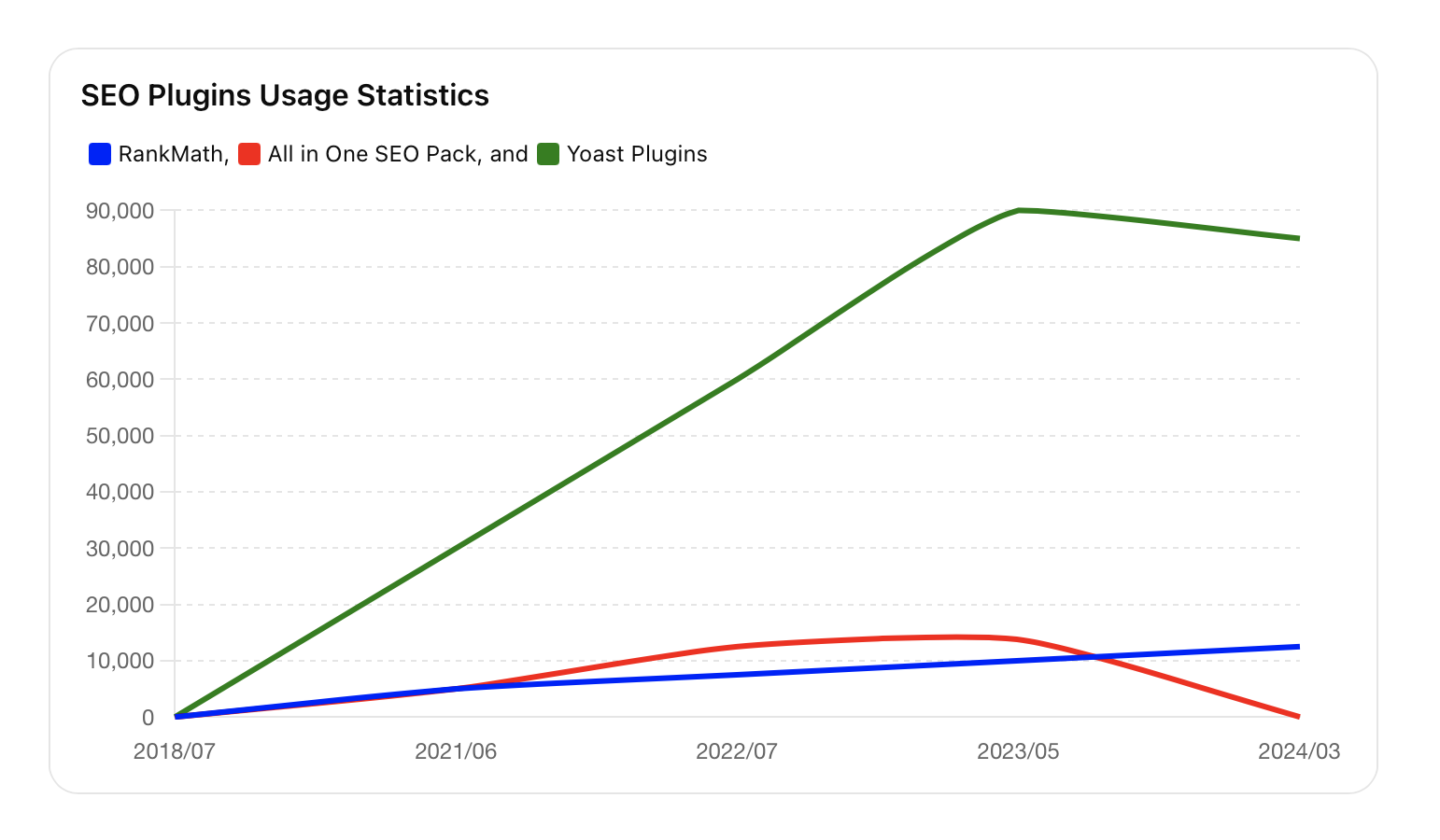
The same trend can be observed by Google Trends, as shown in the image below.
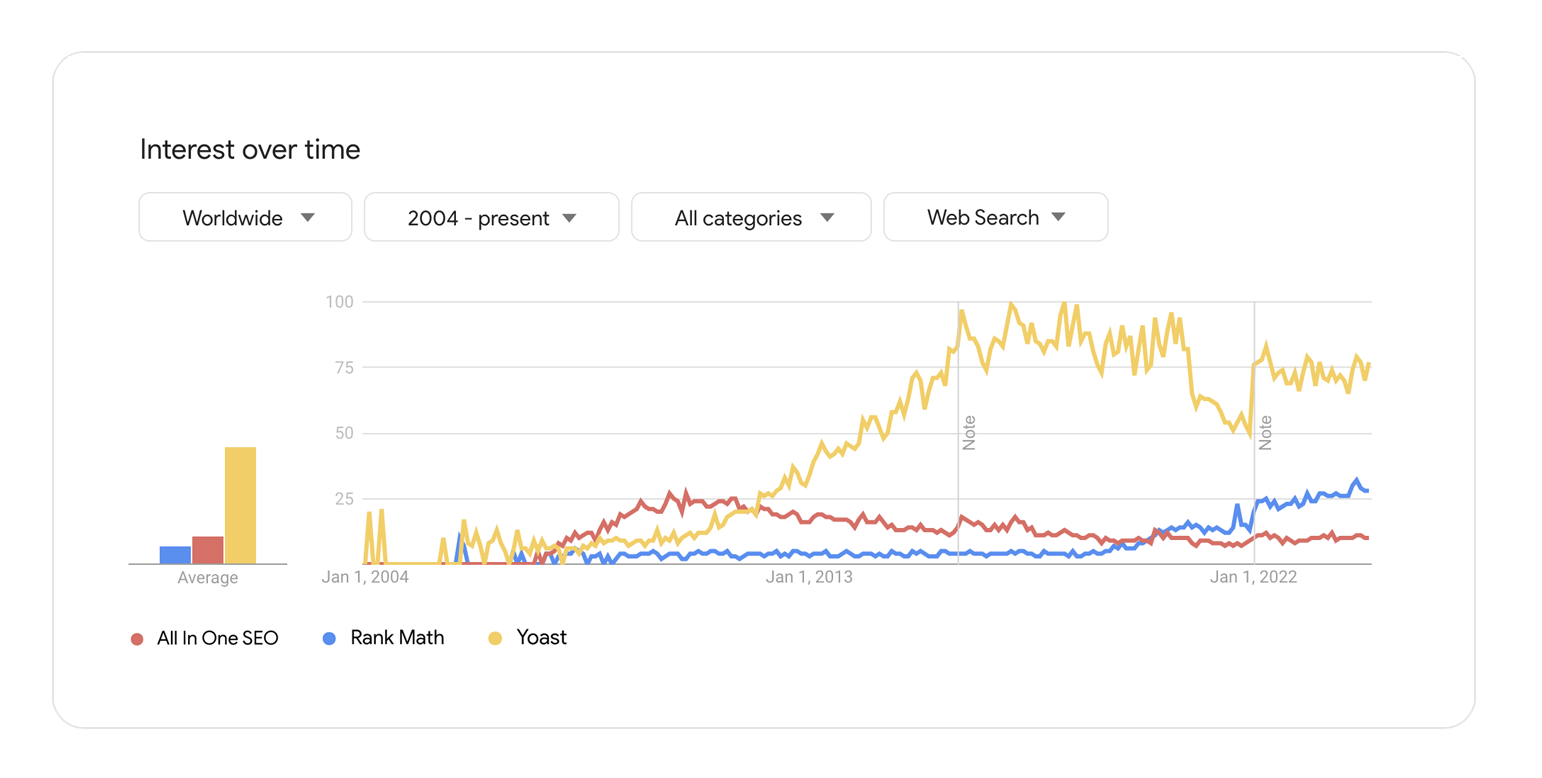
In this article, I want to go over Rank Math features, which is I believe is currently the leading on-page optimization SEO plugin for WordPress. In recent years, as I mentioend above I’ve found myself switching from Yoast and All In One SEO to Rank Math for many different WordPress projects that we manage, and this leads to writing this review article about Rank Math, pointing out what exactly makes this WordPress SEO plugin a great one and why so many users are switching to Rank Math from other prominent SEO plugins.
Familiar Score-based On-Page Optimization System
Rank Math, like Yoast, provides a score-based on-page optimization system. You can define one or several focus keywords, and it suggests tips to improve the optimization of the page or the post with Basic SEO, Additional, Title Readability, and Content Readability sections.
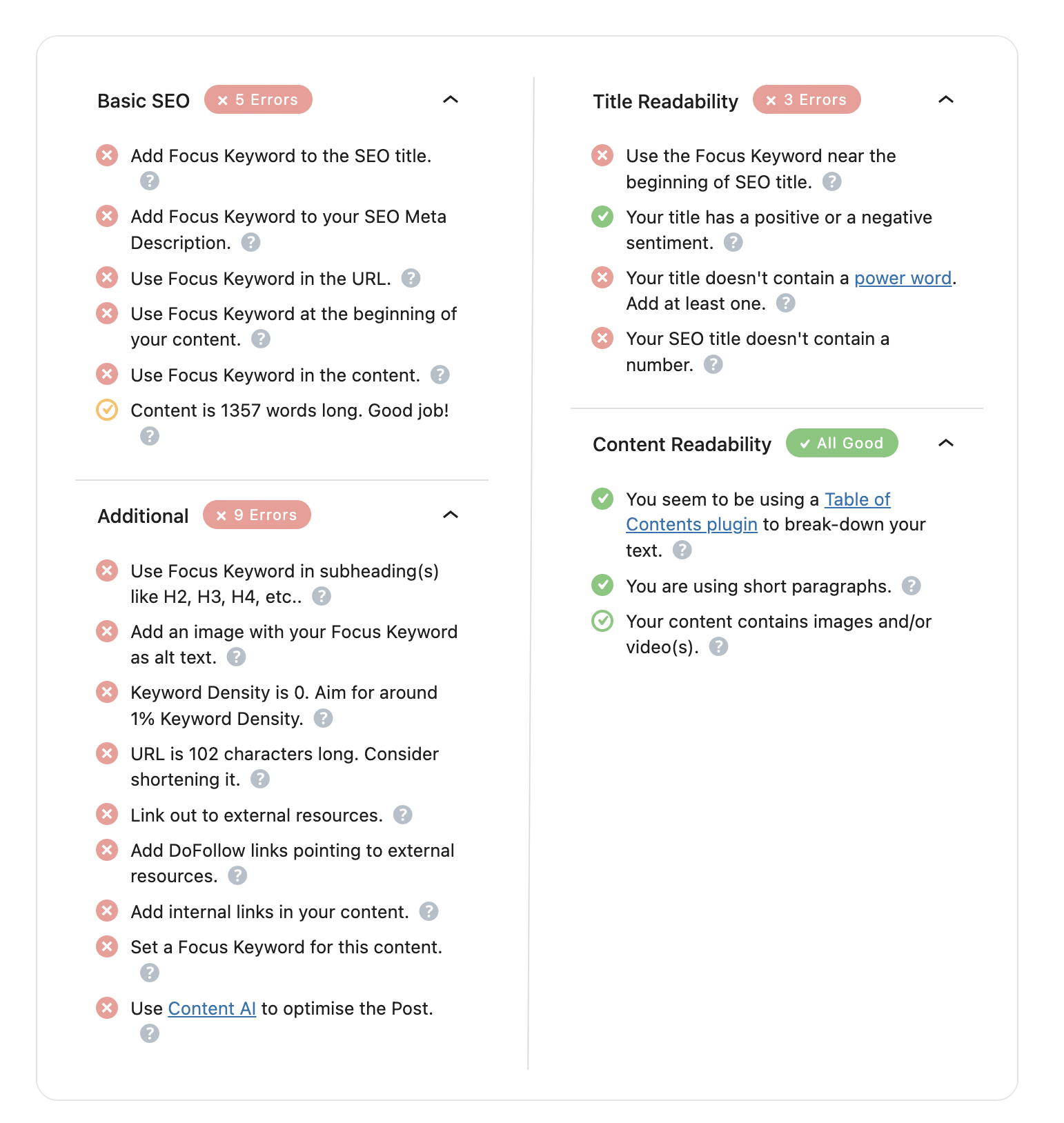
Focus Keyword: Just like Yoast SEO, you need first to set a focus keyword, which is the keyword for which you want to rank your blog post or page. Rank Math will give you an optimization score based on its analysis of how well you have used this focus keyword throughout your article and in important areas like the title tag, meta description, URL, etc.
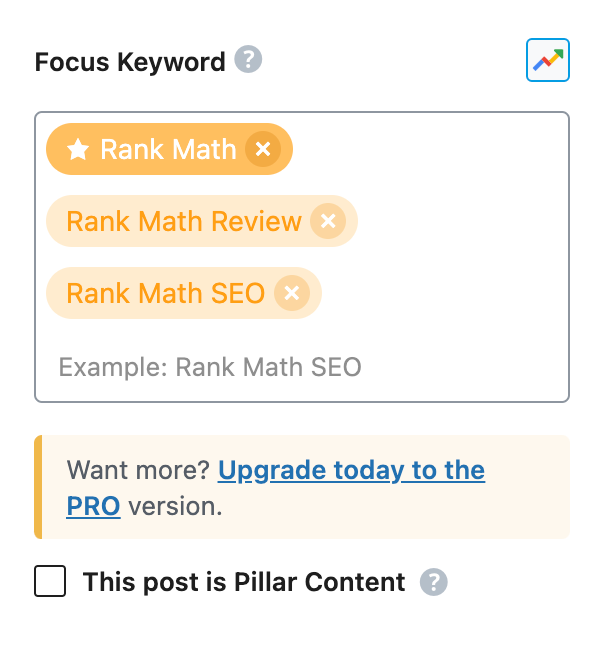
What is good about Rank Math is that you can set more than one focus keyword (up to 5 keywords) even with the free version, something you can’t do with Yoast’s free version.
If you have a pro version of Rank Math, you can access the keyword trends as well, right from where you add your focus keywords.
Basic SEO: Basic SEO tips suggest adding keywords to the title tag, meta description tag, and slug (page URL). It also suggests using the focus keyword at the beginning of the content and in the content itself and suggesting a recommended length for the content itself.
Additional: The additional section suggests using the focus keywords in the heading tags, H1 to H4, adding images with the focus keyword in the image alt tag, calculating and recommending an optimum keyword density, recommending the URL be within a certain length (maximum 75 characters), and recommending linking to internal and external resources.
Note: Image alt tags are an accessibility kind of element, so don’t keyword stuff them, don’t over-optimize, and remember that site-wide keyword stuffing of an element like the alt tag can result in algorithmic devaluation of your entire website when Google runs a core update that uses machine learning to filter out spam results.
Title Readability: This one suggests using the focus keyword near the beginning of the title tag, a positive or negative sentiment word, and a power word in the title tag. The latter two ones are kind of overboard, and I don’t think they are necessary, so don’t really get too obsessed with them.
Note: Don’t get obsessed with achieving a high on-page score; use the tips in the Rank Math on-page optimization module to write better content that can work better in search results, but don’t stress too much over achieving a 100 score.
Content Readability: This one gives suggestions on enhancing the content with a table of contents, short paragraphs, and images/videos.
I don’t think adding a table of contents to every blog post is necessary. Your posts won’t gain a high ranking simply because they have one. Use a table of contents where it makes sense and where it can enhance user-friendliness.
The Rank Math Content Readability is not really anything about readability. I think this is an area that Rank Math should improve. Yoast SEO readability analysis gives a lot more interesting analysis that actually helps with the readability of the content for this, from Flesch reading sore to analysis for transition words, sentence beginning, paragraph length, word complexity (just available in premium version), subheading distribution, sentence length, and passive voices.
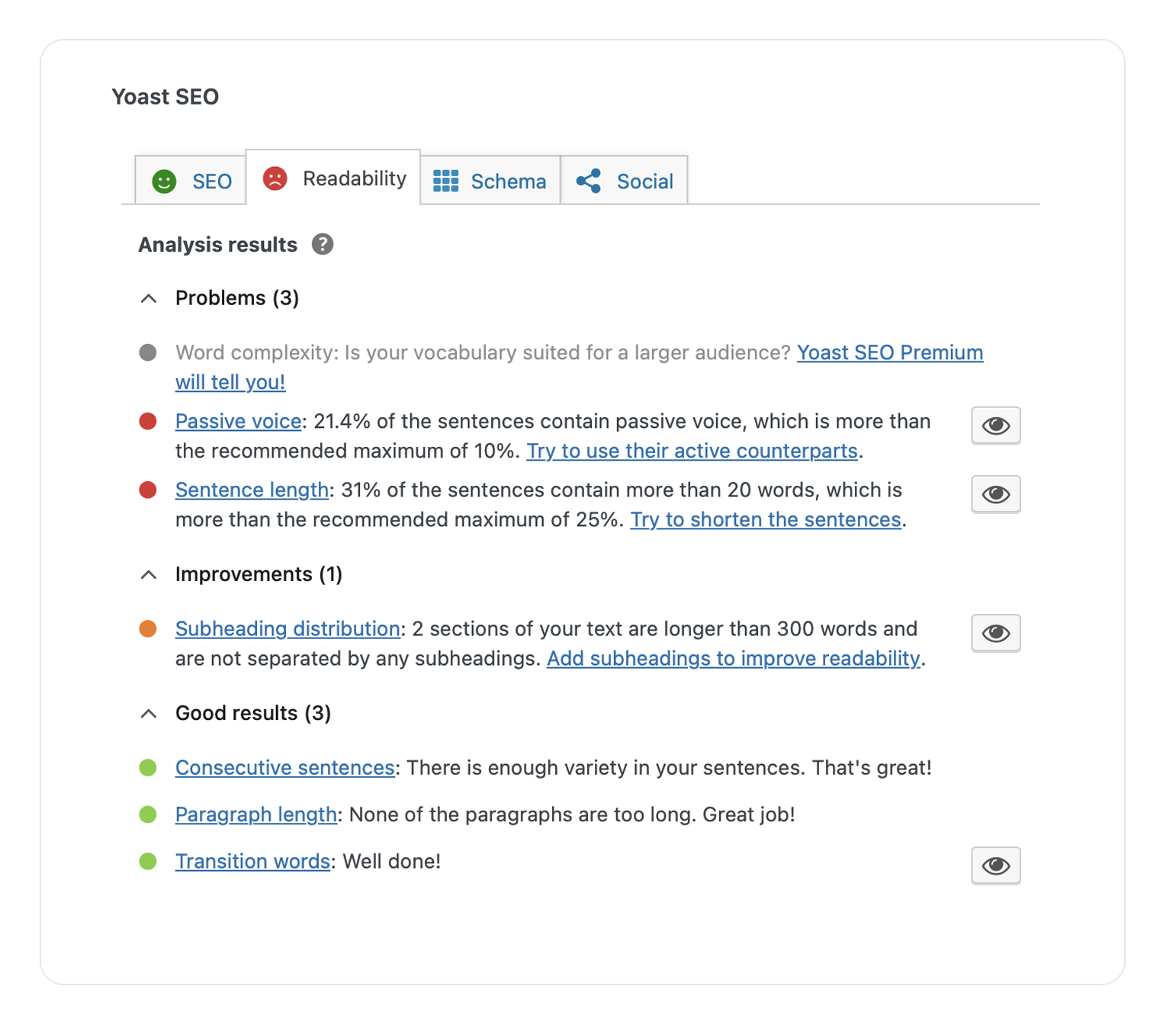
I believe that Rank Math’s main value proposition comes down to its modularity, comprehensiveness, intuitive UI, seamless UX, and affordability. In what follows, I’ve covered Rank Math’s modules and what they do:
Modularity
After Installing, activating, and going through the Rank Math setup wizard, you can navigate to the Rank Math dashboard, where you will see a list of all the modules that Rank Math provides.
Here are some of the Rank Math modules that I recommend enabling: Sitemap, 404 Monitor, Image SEO, Instant Indexing, Link Counter, Local SEO, Redirections, Role Manager, Schema, and SEO Analyzer. Below, you can see a list of the available Rank Math modules and a short description of each.
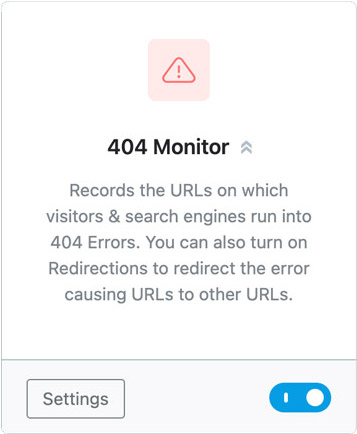
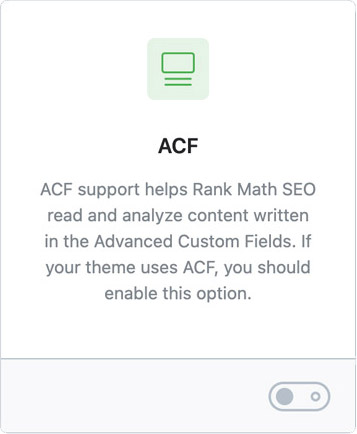

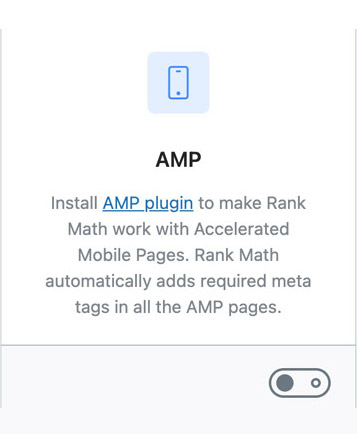
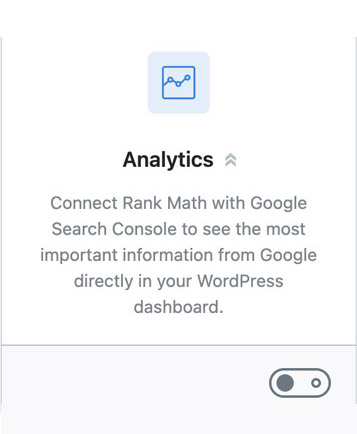
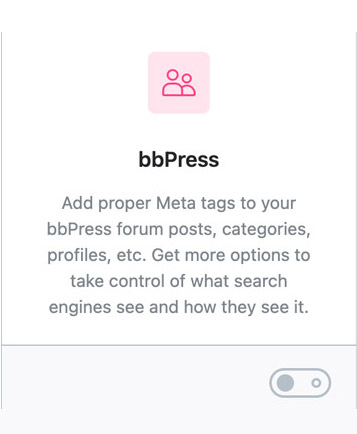
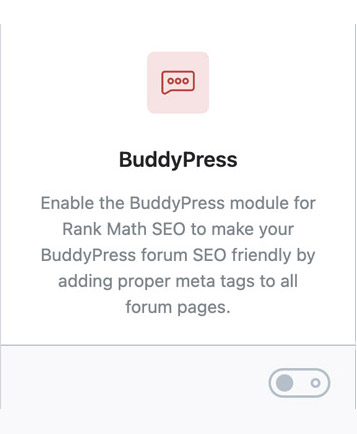


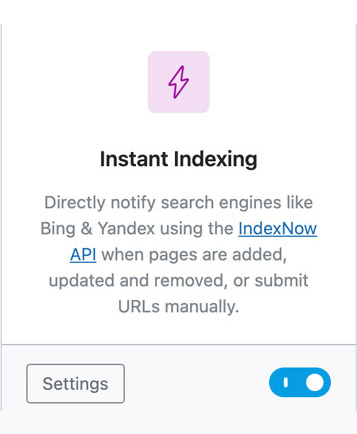
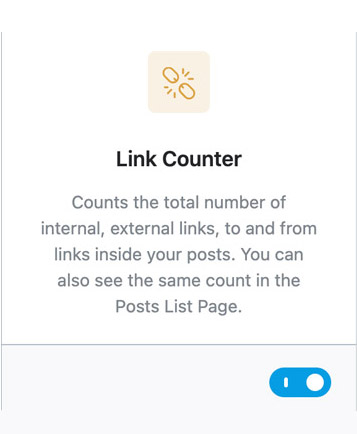
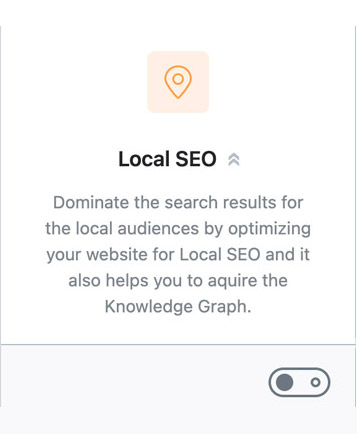
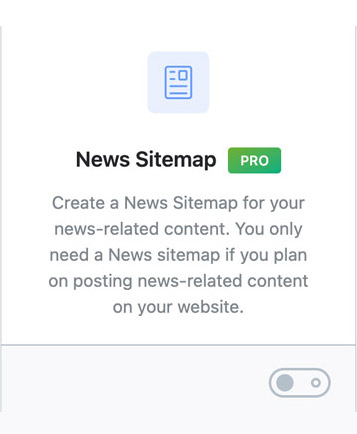


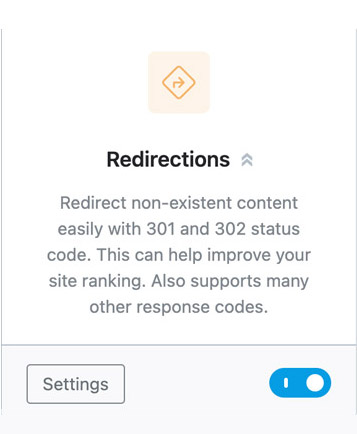
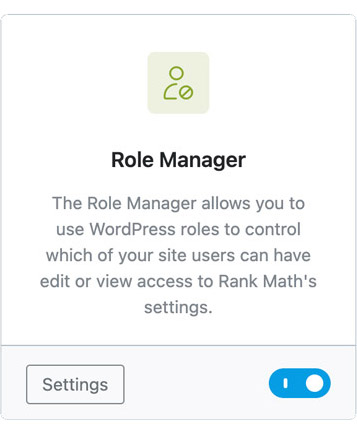
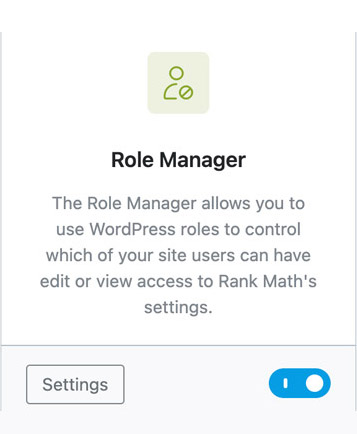
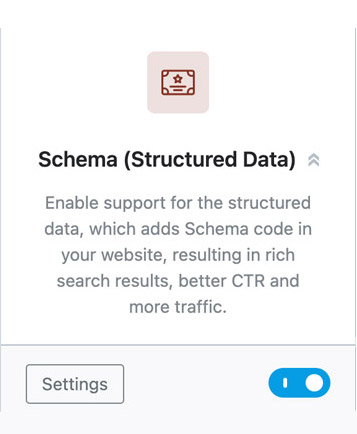

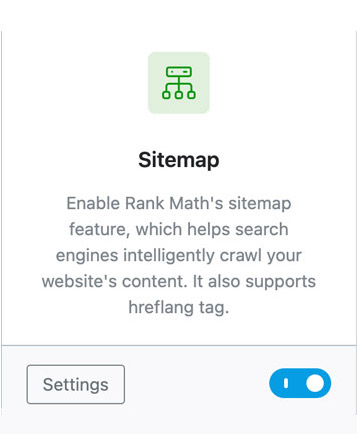
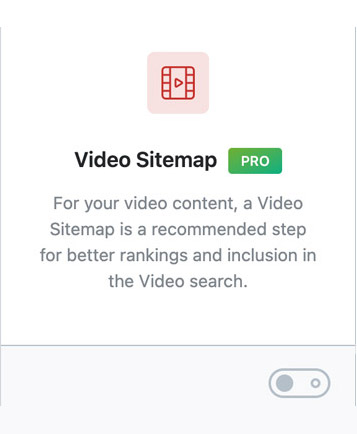

- Content AI: This module generates sophisticated AI suggestions for keywords, questions, and links. It also helps to optimize SEO meta and content areas and supports over 80 countries.
- 404 Monitor: This module helps track URLs that result in 404 errors. It also has the option to redirect or log URLs that cause errors.
- ACF (Advanced Custom Fields): It provides seamless integration with ACF and can analyze and enhance content within ACF fields.
- AMP (Accelerated Mobile Pages): It provides full compatibility with AMP and helps to add required meta tags to AMP pages automatically.
- Analytics: It provides integration with Google Search Console and lets you View critical SEO data directly within your WordPress dashboard.
- bbPress: It adds meta tags to bbPress forum posts, categories, and profiles and helps to gain control over search engine visibility for forum pages.
- BuddyPress: It provides optimization for BuddyPress forum SEO and adds appropriate meta tags to all forum pages.
- Image SEO: Provides advanced options for enhancing image SEO by automating ALT and title tag additions for images.
- Instant Indexing Immediate indexing with Bing and Yandex using IndexNow API also lets you update and submit URLs manually.
- Link Counter: It counts internal, external, and affiliate links in posts and lets you view link counts on the Posts List Page.
- Local SEO: To optimize your site for local search results, it improves local business visibility and enhances Knowledge Graph presence.
- News Sitemap: It creates sitemaps for news-related content that is important for sites regularly posting news content.
- Podcast: It makes your podcasts discoverable on Google Podcasts, Apple Podcasts, and other services by Automatically adding a Podcast RSS feed and schema markup.
- Redirections: Easy management of 301 and 302 redirections and provides support for multiple response codes to fix broken links.
- Schema (Structured Data): It adds schema code to your website and can improve search engine results, click-through rates, and traffic.
- Role Manager: It controls user access to Rank Math settings and lets you define which users can edit or view specific settings.
- SEO Analyzer: It provides a comprehensive website and content analysis by performing 28+ different tests for detailed SEO analysis.
- Sitemap: This adds an XML sitemap and enables search engines to crawl your website content more efficiently. It also supports Hreflang tags.
- Video Sitemap: Create sitemaps specifically for video content and help enhance video search rankings and inclusion.
- Google Web Stories: This module supports Web Stories created with the WordPress plugin by automatic addition of schema and meta tags.
- WooCommerce: Optimize WooCommerce pages for search engines and add necessary metadata and product schema to enhance SERP visibility.
Pricing
Rank Math offers a feature-rich free WordPress SEO plugin with a robust set of basic SEO tools suitable for personal blogs and small websites. It also has paid plans with features such as keyword rank tracking, AI Content, Schema Generator, and other advanced features.
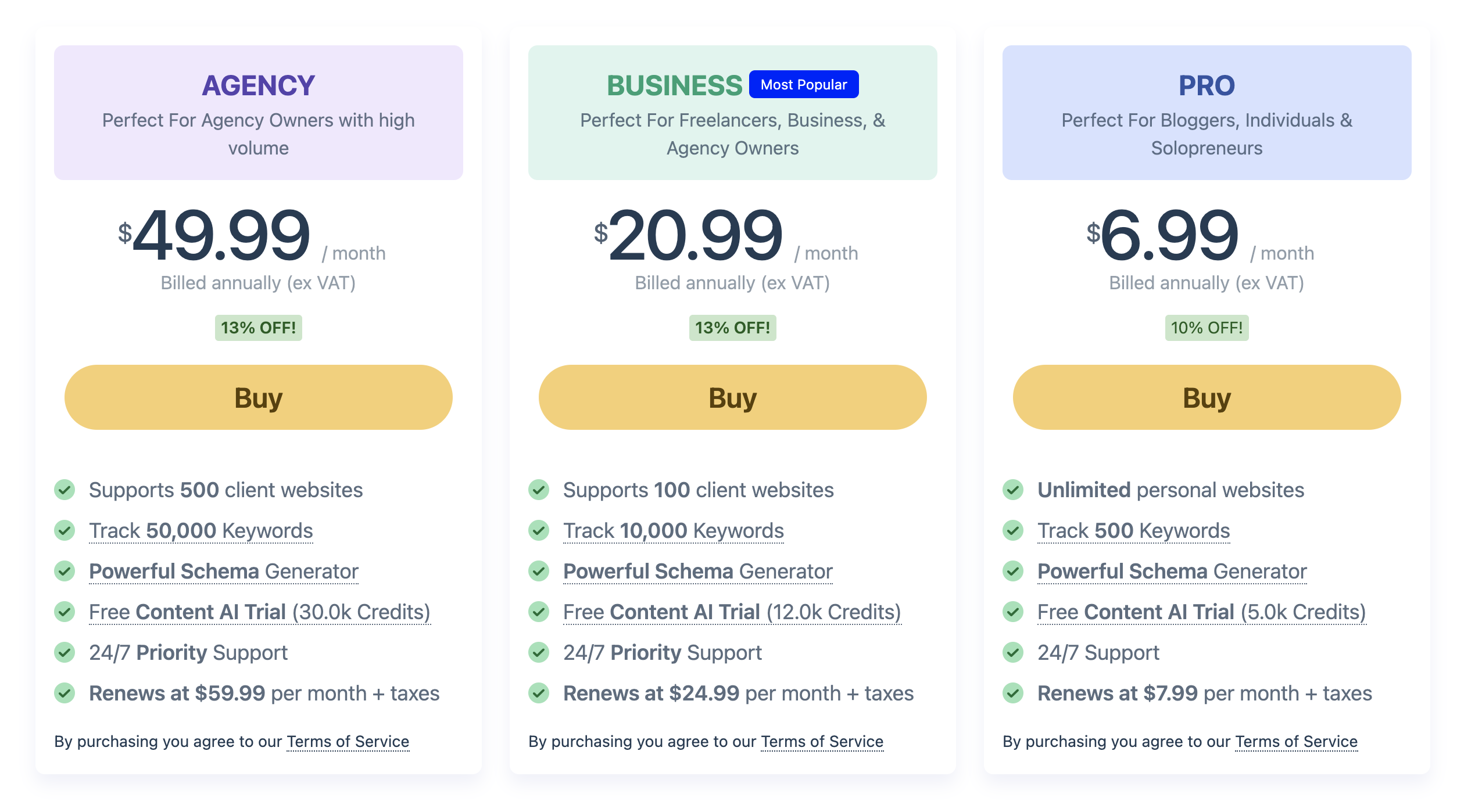
One thing that makes Rank Math’s pricing very competitive among its competitors is its unlimited website with any of its plans. This means that you can install Rank Math on an unlimited number of sites with just one license, making it much more affordable than other WordPress SEO plugins like Yoast or AIOSEO, which charge per site.
Why many WordPress Users Are switching to Rank Math
Some of Rank Math’s strengths are its feature-rich free version (that allows optimizing for multiple keywords at once), ease of use that comes from its intuitive design and user interface, and unmatched competitive premium pricing that comes from its unlimited website premium plans.
Any premium Rank Math plan includes an unlimited number of sites, which is unmatched by other WordPress SEO plugins (Yoast, AIOSEO, and SEOPress) that charge per site. This makes Rank Math a cost-effective WordPress SEO plugin that not only gets the job done but goes way beyond that.
The setup wizard, role manager, and inclusion of multiple tools under one roof, which eliminate the need to install separate plugins for different SEO features, in addition to its modularity of features, give Rank Math a real competitive edge.
All these advantages can explain why many WordPress users are switching from other WordPress SEO plugins to Rank Math, explaining its upward trends in recent years.
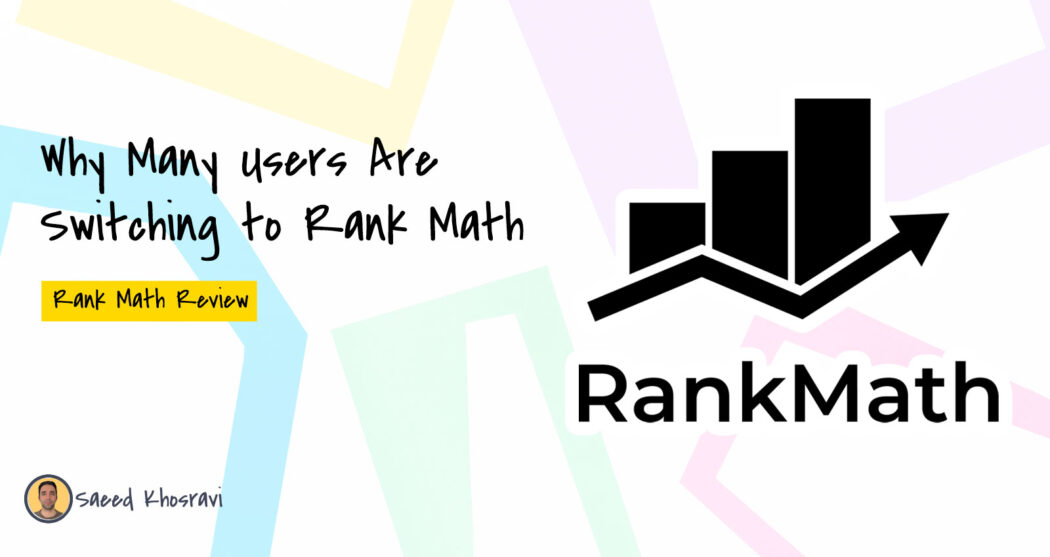

A very well written review. One thing I miss though. For all AI actions you need an extra payment. Combined, this makes rankmath not exactly cheap.
Thanks for the comment, Dirk. It’s a good and valid point. The main focus of this article was to provide an honest analysis of Rank Math features as a WordPress SEO plugin, comparing it with other well-known plugins. I think the AI feature is an extra feature that does not fall directly under the main functionalities of a conventional on-page SEO plugin.